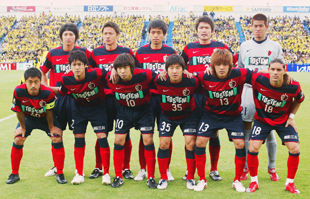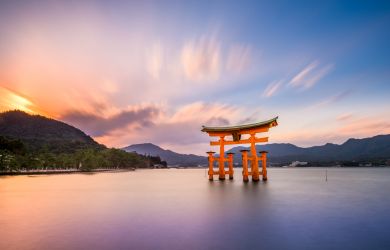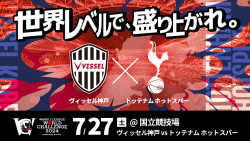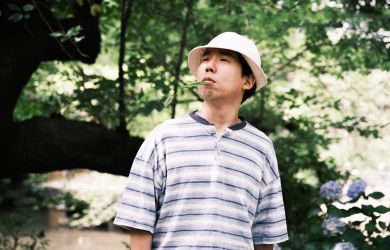
December 17, 2009
J. League Report Card
Kashima reigns supreme in the 2009 championship
By Metropolis
Originally published on metropolis.co.jp on December 2009

There were those—myself included—who wondered if the race for the J. League title might become dull and predictable when they did away with the two-stage system. Fortunately, that hasn’t been the case. For the last three years, the championship has been decided on the final day of the season, with the only point of monotony being the fact that Kashima Antlers won each time. In fact, Kashima hasn’t finished below sixth in the league for a decade.
How could that be?
Well, it helps to have a good manager, good fans, a good attitude and a good squad. Oswaldo de Oliveira (above right) might have had a patchy track record before joining the team—despite winning the inaugural FIFA Club World Championship with Corinthians in 2000, he coached at ten different clubs in the space of a decade—but since settling into the tiny Ibaraki town, he has been a rock. Kashima is a superbly organized, well-balanced and disciplined team, and, like Manchester United, they play to win over 90 minutes. That spirit is embodied by midfielder Mitsuo Ogasawara (right). Kashima were off the pace when he returned from a year in Serie A in 2007, but he helped them win the title and has been in imperious form ever since.
Kawasaki Frontale might consider themselves unlucky to finish runners-up two years in a row, but given that they were in J2 six years ago, they’ve created a strong team. They may not have the overall strength of Kashima, but they excel going forward, spurred on by the intelligent play of Kengo Nakamura. However, it’s up front where their talents lie. The team has been lucky to find a consistent and deadly foreign striker in Juninho (as have Kashima with Marquinhos), and they’ve nurtured the talents
of Japan-bred North Korean star Jong Tae Se, who plays alongside the Brazilian up front.

Akira Nishino’s Gamba Osaka were in the running again, but had too many bad days and eventually finished six points off the pace in third.
At the other end of the table, JEF United deservedly ended up at the bottom after making one of the dumbest decisions ever in Japanese football: canning Scottish manager Alex Miller midway through the season. Oita Trinita picked up after getting rid of their own manager, Pericles Chamusca, following a run of 13 straight defeats, but they could only finish 17th. They will be joined in J2 next year by Kashiwa Reysol and their intensely rabid fans. Going up to J1, meanwhile, are J2 champions Vegalta Sendai—with another fantastic set of fans—along with Cerezo Osaka and the revitalized Shonan Bellmare.
2010 is a World Cup year, so the J. League schedule will be full of gaps to give us all plenty of opportunity to watch Takeshi Okada’s Japan team implode on the international stage. Once again, there may be a lot of soul-searching over the state of Japanese soccer, but one person is in no doubt about its level.
“The J. League is boring,” said Motoaki Inukai—the president of the Japan Football Association.
Inukai basically claimed that Japanese players were goal shy—a common complaint that wasn’t entirely borne out this season. Jubilo’s Ryoichi Maeda was the league’s top scorer with 20 goals, while Naohiro Ishikawa of FC Tokyo netted several sensational goals to finish fourth, behind Urawa’s Edmilson and Kawasaki’s Juninho. (Of course, you don’t actually have to score a lot of goals to play good soccer, but it certainly helps your team’s PR.)
Despite their efforts, though, the simple fact is that Japanese soccer hasn’t progressed as much as it should have done in the 16 years since the start of the J. League. Style is still far more important than substance. Perhaps the league is not as dull as Inukai thinks, but it’s not as good as it should be either.
Let’s hope that Holland, Denmark and Cameroon don’t prove this point too emphatically in South Africa next year.

-390x250.jpg)





